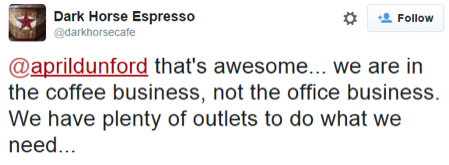Bad Reputation Survival Guide: 8 Ways to Overcome Adversity
November 6, 2015 By rightly No comments yet Reputation, Social Media
It almost always catches small-business owners by surprise. Sometimes we get the inkling that something was off about a transaction, or we’re aware when we can’t manage to satisfy a difficult customer, but rarely do we expect the fallout. Damaging remarks may appear on a social media page, a blog comment, or a review website, and we’re instantly thrown into DEFCON 2. What’s a person to do when his reputation is at stake? Use these eight psychology-backed methods to overcome the emergency.
- Make “It’s Not About Me” Your Mantra
Back in the day, the TV show “How I Met Your Mother” highlighted a worst-case scenario in reputation management. Ted’s friend, Barney, told a girl he was Ted, and then slighted her after a single date. The girl responded by creating the “Ted Mosby is a Jerk Website.” That was personal. If you’re dealing with a person who is upset with some facet of your business, then it’s about the business. Even if the person attacks your character, they’re doing it because of a business incident. Chant “It’s not about me” as many times as you need to until you believe it.
- Remember that All Established Companies Have Been through This
It’s impossible in this day and age to run a small business and not ever have anyone become upset. All owners and managers deal with it at some point, and remembering this can help reassure you that, even though it stinks, you’re not alone.
- Walk a Mile in His Shoes
The old adage goes that you shouldn’t judge someone without walking a mile in his shoes. A jokester will be quick to point out that the man will be tired and barefoot, which makes it safer to go on the offensive. Realistically, though, you should try to understand why the customer is thinking and feeling what they are. It could be that they just had a bad day. If that’s the case, and you handle the incident with grace, you may win over a referring customer for life. If not, you may have gained insight into the minds of several of your customers, because so many of them will never speak up. A few years ago a coffee company chose to bite back when a customer complained there weren’t enough electrical outlets in the store for laptops. Perhaps the person who responded was ticked about people who expect a Starbucks experience everywhere, but if the client has been conditioned to expect a certain level of treatment, it makes sound business sense to appease the masses if it’s within reason to do so. It’s not like the customer is suing you for $1.5 million because your employee only gave him one napkin, right? (That happened to McDonald’s.)
- Go Forward with Intent
Self-fulfilling prophecies are a two-way street. Maybe you want to tell the customer that he’s being unreasonable, but that increases the odds that, if he isn’t already being unreasonable, he will be, or that if he already is, his expectations will grow. At the same time, if he’s saying that you won’t listen, be sure to prove him wrong. Show him that you understand his issue, but do it in a polite way. It’s too easy to do exactly what the person is accusing you of, if you aren’t mindful when you begin communication, or start without a goal in mind.
- Focus on the Positive Interactions
Sometimes that one person gets us down, and it can ruin a whole day. If you realize you’re shortchanging the people that you’re helping now, because of what some other person has done online, you need to change your mindset. Every time you catch yourself thinking about the incident, replace that thought with one about a time where things went perfectly. Most importantly, focus on creating awesome experiences, going forward.
- Keep Your White Flag Handy
There are instances when it’s a million times easier, and better in the long run, to simply surrender and accept some form of responsibility for an incident. If the coffee company mentioned earlier had simply said, “We were so focused of making awesome coffee, we overlooked the atmosphere. We’ll look into how we can change it. Thanks for the heads up,” the company never would have been drug through the mud. The same thing could be true for the McDonald’s incident. Maybe if the manager would have apologized and offered a free meal, it never would have escalated to court.
- Know When to Burn Your White Flag
There are also times when people are wrong about you and your company, and it can be factually proven. If someone’s upset that you no longer stock a product that you’ve never had, or complaining about an employee who has never worked for you, there’s no need to give in. However, the issues should still be handled politely.
- Set Yourself Up for Future Success
Social media takes on a life of its own, and you have to handle issues immediately after they present themselves. If you have a page, you need to monitor it and be diligent with replies. You can also use a service like Google Alerts, to notify you when you or your company is mentioned online. When you respond to issues promptly, and with a positive, goal-oriented attitude, you control the tone of your page. This goes a long way to ensuring an issue never gets out of hand again.
In the grand scheme of things, one person’s bad review or comment probably won’t sink you, even if you run a local business. When significant damage is caused, there are ways to repair it as well. Keep pushing forward, and create as many good experiences as possible. If all else fails, find something to laugh about. It’ll reduce your stress, and may help you come up with other ways to overcome a reputation snafu. This, too, shall pass… unless you’re Ted Mosby. In which case, you will forever be immortalized as a “jerk.






Leave A Comment